
Poésie, poèmes et poètes
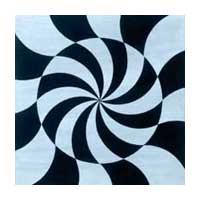

L’Invitation au Voyage
Mon enfant, ma sœur, Songe à la douceur D’aller là-bas vivre ensemble ! Aimer à loisir, Aimer et mourir Au pays qui te ressemble ! Les soleils mouillés De ces ciels brouillés Pour mon esprit ont les charmes Si mystérieux De tes traîtres yeux, Brillant à travers leurs larmes.
Là, tout n’est qu’ordre et beauté, Luxe, calme et volupté.
Des meubles luisants, Polis par les ans, Décoreraient notre chambre ; Les plus rares fleurs Mêlant leurs odeurs Aux vagues senteurs de l’ambre, Les riches plafonds, Les miroirs profonds, La splendeur orientale, Tout y parlerait À l’âme en secret Sa douce langue natale.
Vois sur ces canaux Dormir ces vaisseaux Dont l’humeur est vagabonde ; C’est pour assouvir Ton moindre désir Qu’ils viennent du bout du monde. – Les soleils couchants Revêtent les champs, Les canaux, la ville entière, D’hyacinthe et d’or ; Le monde s’endort Dans une chaude lumière.
Charles Baudelaire, Les Fleurs du mal (1857)
103 commentaires sur “L’Invitation au Voyage”
Chouette ce poème. Il est magnifique.
C’est grâce à ce poème lu par hasard que j’ai fini par lire tout Baudelaire, car figurez vous qu’il n’a pas écrit que les Fleurs du mal. Cela me désole que des adolescents trouvent ce poème trop long à mémoriser, moi je le trouve trop court ! Lorsqu’on plonge dans les rêveries du poète, on a pas envie de se réveiller de ce doux univers fait de sensations sensuelles, de fragrances de divers encens, d’éclats dorés qui luisent dans le clair-obscur… en devinant que ce monde magique et magnifique est doucement bercé par des volutes d’opium.
Je trouve cette poésie très émouvante
Un p’tit peu long mais c’est jolie et triste
J’adore. J’ai trouvé cette poésie très belle! Mais elle est très triste.
C’est pathétique de constater l’ignorance actuelle. L’école est gratuite en France et pourtant beaucoup semblent ne pas l’avoir fréquentée…
C’est tellement rare de lire un texte sans faute d’orthographe ou de grammaire. Nos poètes et écrivains magnifiques doivent se retourner dans leurs tombes !
C’est un peu long mais c’est joli !
Notre plus grand poète et Dieu sait que la France est le pays de la poésie. Bien entendu les cuistres de la nouvelle éducation n’aiment pas la poésie. Tout ce qui élève l’âme leur est étranger. Priver nos enfants de ces merveilles est criminel.
Se réveiller un matin ces vers dans son esprit, sur sa langue… Merveilleux… On était jeune, et j’ai senti le besoin d’ouvrir cet « engin » pour me rappeler et me réjouir.
Adalbert a bien raison.
C’est bien gentil tout ça. Mais ça ne m’aidera pas à payer mes impôts.
J’adore
Bien sûr, ce poème prend l’âme. Et je n’ai eu que 18,5/20 au bac, grâce à un autre poème de Baudelaire (« Harmonie du soir »), plus aisé à décortiquer (je pense que les profs de français sont surtout sensibles au verbiage que l’on peut leur servir). Mais lire ici les commentaires est parfois instructif.
Très beau poème…
Le seul poème que j’aurai voulu avoir au bac de français… mais je ne l’ai pas eu… Merci à ma p’tite maman pour me l’avoir cité depuis que je suis toute petite !
A toi mon beau Charles, grâce à toi des mauvaises notes seront mises à un examen dont tu es la motivation. A cause de toi, des années passeront sans que personne ne comprenne ce poème et doit néanmoins l’apprendre. Merci à toi Charles, pour tant de mauvaises notes, de larmes sur les copies d’écoles et de tragique remarques envers ceux qui auront réussi à t’apprendre. Triste d’écrire ça, je suis sure que dans le fond t’étais un bon toi aussi, bisou:)
Une honte! Cet enculé à tout volé sur les Inconnus: « Là, tout n’est qu’ordre et beauté, luxe, calme et volupté, redonne un sens à ta vie, en y mettant de la PO-E-SIE, poésie!!! ».
Pour compléter ce monument de la poésie, on peut écouter la mélodie d’Henri Duparc, qui a su mettre ce texte magique en musique. Je trouve que sa mélodie restitue avec élégance l’atmosphère mystérieuse et onirique du texte. Par contre il n’a pas utilisé la deuxième strophe, dommage.
Quel bonheur de vous faire découvrir ceci (en tout cas pour moi). Sidéré que j’étais de n’avoir rien trouvé sur elle alors que je cherchais son nom sur Google.
En balade avec ma femme à Nazare dans une boutique de décoration. Cristina branco chanteuse de fado chante l’invitation au voyage… Je ne connais ni Baudelaire ni la poésie ni elle et pourtant la chaussure est faite pour ce pied la… j’ai fait quelques recherches depuis, c’est pour nous la plus belle interprétation de ce leg. (Aussi pour ceux qui souhaitent apprendre ce poème par cœur..)
Merci Baudelaire, merci Branco
Après lecture de ce poème je me suis senti transpercé par un sentiment d’apaisement puis ensuite j’ai commencé a me souvenir de mes souvenirs d’enfance puis j’ai mangé une banane. Monique cette lettre est pour toi.
Que de commentaires débiles ! Ahurissant !!! Si vous n’êtes pas sensibles à la poésie, abstenez-vous d’en parler …
Ce qui est extraordinaire quand on connait beaucoup de poèmes par cœur appris dans l’enfance ou la jeunesse c’est qu’on ne les oublie pas et qu’on peut se les redire à volonté…. merci à celles et ceux qui nous les ont fait apprendre!
Que dire… Tout comme après le lac de Lamartine.
Je dois l’apprendre et à chaque fois que je le lis il me rapporte du bonheur. Il est long mais très beau. Charles Baudelaire est très fort, il est l’un des meilleurs.
J’ai appris ce poème par coeur en classe de 1ère, je crois, en 1949! Je le sais et l’adore toujours en 2022.
Ahah je vais le chanter
On découvre la poésie quand on lit ce poème des fleurs du mal « Invitation au voyage ». La musique des mots les images qui surgissent sont si bouleversantes qu’on se découvre poète. Rare, unique. Merci Baudelaire.
J’adore, c’est très beau.
Levi était un amis très proche de Baudelaire, ils étaient très inspirés par leurs histoires et des anciens poètes.
La vie ça va trop vite moi aussi en cm2 j’avais 76 ans LOL LOL hahahah
Charles Baudelaire a aimé au passé plusieurs femmes et parmi elles Marie Daubrun, qui lui brisa le cœur en le délaissant pour un autre poète.
Mdr si on avait pas de fiche lecture à faire ce poème aurait était bien
Il fait partie des meilleurs poèmes de la poésie française. Un très beau poème.
Personnellement, je ne suis pas fan de poésie mais celui-là est vrmt magnifique
Je dois apprendre ce poème et je le trouve génial !
J’adore cette poésie même si je dois l’apprendre.
Je trouve ce poème magnifique !
Super, j’ai eu 20/20 en CM2 et je l’ai appris en 1 jour (entier).
Il est beau mais je ne souhaite pas l’apprendre pour autant même si j’y suis obligé. Mais Baudelaire est un très bon poète.
Je n’aime pas la poésie parce que je dois l’apprendre par cœur
C’est un très beau poème. Je l’adore ainsi que le livre complet « Les Fleurs du Mal » J’ai eu la chance d’ailleurs de tomber sur cette poésie que j’aime tant et merci à elle car j’ai battu le record de mon lycée français de depuis 3 ans 20/20 à l’oral.
Trop chic ce poème
J’adore ce poème et je l’ai mis en musique.
Un jour, j’avais 15 ans, ma prof de français était malade, et absente. La directrice de l’école est venue nous faire la leçon. Elle nous a présenté « L’invitation au voyage ». La directrice me faisait ch… Mais : c’est la seule (une heure) leçon dont je me souvienne 50 ans plus tard.
Charlie t’aurais pas du inventer le poéme mtn je dois faire un bilan personnel dessus
J’adore ce poème. Je trouve que la répétition de « Là, tout n’est qu’ordre et beauté, Luxe, calme et volupté » est vraiment bien trouvé et très belle. Bonne lecture à tous et surtout profitez de ce confinement pour lire de superbes poèmes, comme celui là.
Je ne comprends rien à ce poème et des personnes de 12 ans ne sont pas apt à l’apprendre en 5 jours.
Super poème.
C’est le condensé de ce que la poésie peut élever notre âme. Il faut prendre les mots avec leur propre musique et se taire et se laisser porté !
J’ai adoré lire ce poème
Personellement je l’ai appris il n y a pas très longtemps et je le trouve magnifique.
L’Invitation au voyage est le titre de deux poèmes de Charles Baudelaire. L’un, en vers, figure dans le recueil Les Fleurs du mal (1857), numéro XLIX (49) de la première section intitulée Spleen et Idéal ; l’autre est en prose, publié en 1869 dans le recueil Le Spleen de Paris (numéro XVIII).
Dans le poème en vers, le poète décrit à sa bien-aimée Marie Daubrun un pays idéal (inspiré de la Hollande) où ils pourraient s’installer ensemble. On y trouve les célèbres vers :
« Là, tout n’est qu’ordre et beauté, Luxe, calme et volupté. »
La mise en musique de ce poème de Baudelaire la plus célèbre est celle composée par Henri Duparc en 1870. Le texte y est incomplet, le compositeur ayant écarté la deuxième strophe.
En 1870 également, Emmanuel Chabrier publie une mise en musique du poème complet pour voix, piano et basson.
En 1892, Maurice Rollinat a mis en musique ce poème de Baudelaire.
Léo Ferré en a réalisé une nouvelle mise en musique dans son album Les Fleurs du mal en 1957, l’année du centenaire de la publication du recueil. Le poème cette fois-ci est complet.
Les Inconnus, dans un de leurs sketchs parodiques où ils incarnent le groupe de hard rock « Dousseur de vivre », reprennent les célèbres vers susmentionnés dans le refrain de la chanson Poésie.
À son tour, l’album Cyfry de Wojciech Płocharski contient l’interprétation du poème en polonais.
En 1999, Manlio Sgalambro et Franco Battiato ont réalisé une traduction italienne en forme de chanson dans l’album Fleurs.
En 2016, le groupe Superbus, dans la troisième piste de son album Sixtape, Soul Sister, reprend à intervalle régulier les trois premiers vers du poème.
Et ça fait bim bam boum
C’est très dur à chanter, cette poésie fut écrite pour accompagner une musique de Henri Duparc. Elle se mêle intimement au texte à tomber en pâmoison mais elle n’est pas facile d’accès, on s’en rend compte quand on la découvre de l’intérieur. Un autre poème féroce cette fois-ci : La charogne.
Bon bah super, j’dois apprendre tout ça pour jeudi. Merci Charles
Il est très beau
Pardon, j’avais oublié le poème de J. Du Bellay « Heureux qui comme Ulysse ». Qui me tient particulièrement à cœur.
Avec les sonnets de Ronsard, à Cassandre et à Hélène, c’est un des plus beau poème d’Amour que je connaisse. Et les trois que je retienne.
Je l’apprends au collège en 5ème
La mise en musique par Henri Duparc, de cet immortel poème, est un réel chef-d’œuvre. Curieux qu’aujourd’hui, cette merveille soit bien oubliée…
J’adore ce poème! Je l’ai apris en CM2 et c’est encore aujourd’hui mon poème préféré! Je le trouve magnifique, Baudelaire était vraiment un génie…
J’adore ce poème, la musique, les sentiments, tout y est. Il évoque toujours en moi un calme, une sérénité que je n’éprouve que rarement… Merci Baudelaire
Un poème génial
Le poème est très beau mais il est un peu trop long.
Je vous conseille d’écouter sa mise en chanson par Jacques Bertin
Ce poème est juste magnifique… j’avais le choix entre plusieurs poèmes pour mon devoir de français, mais celui ci m’a completement tapé dans l’oeuil. Je dois faire une analyse dessus et ce poème est tellement riche, en plus d’être sublime!
Je trouve ce poème très touchant… J’en ai eu des frissons lors de ma lecture. La larme m’est même tombée sur la joue, c’est pour dire. Plus magique que disneyland. Un bijoux. Un trésor. Une pépite. Une pluie d’or.
Baudelaire « parle bien à notre âme en secret sa douce langue natale »
Ah, ce Georges Brassens, quel bavard!
Poème inspiré par le séjour de Baudelaire à la Réunion…
J’aime trop cette poésie. Elle est charmante.
ALEXIS (8 Novembre 2018) Je vous rappelle que ce beau poème existe aussi en disque chanté par Léo Ferré (45t. Odéon) peut-être en CD ?
C’est cool mais un peu trop long.
C’est joli mais c’est un peu trop long pour apprendre en une fois.
Je remercie les poètes car sans eux, le Monde serait moins magique.
Unanimitè. Le dire calmement, à voix mi basse, dans un souffle régulier, comme on respire
Laisser un commentaire
Votre adresse e-mail ne sera pas publiée. Les champs obligatoires sont indiqués avec *
Commentaire
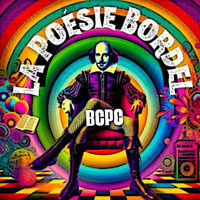

Charles Baudelaire's Fleurs du mal / Flowers of Evil
L'Invitation au voyage
Là, tout n'est qu'ordre et beauté, Luxe, calme et volupté.
— Charles Baudelaire
Invitation to the Voyage
My child, my sister, Think of the rapture Of living together there! Of loving at will, Of loving till death, In the land that is like you! The misty sunlight Of those cloudy skies Has for my spirit the charms, So mysterious, Of your treacherous eyes, Shining brightly through their tears.
There all is order and beauty, Luxury, peace, and pleasure.
Gleaming furniture, Polished by the years, Will ornament our bedroom; The rarest flowers Mingling their fragrance With the faint scent of amber, The ornate ceilings, The limpid mirrors, The oriental splendor, All would whisper there Secretly to the soul In its soft, native language.
See on the canals Those vessels sleeping. Their mood is adventurous; It's to satisfy Your slightest desire That they come from the ends of the earth. — The setting suns Adorn the fields, The canals, the whole city, With hyacinth and gold; The world falls asleep In a warm glow of light.
— William Aggeler, The Flowers of Evil (Fresno, CA: Academy Library Guild, 1954)
My daughter, my sister, Consider the vista Of living out there, you and I, To love at our leisure, Then, ending our pleasure, In climes you resemble to die. There the suns, rainy-wet, Through clouds rise and set With the selfsame enchantment to charm me That my senses receive From your eyes, that deceive, When they shine through your tears to disarm me.
There'll be nothing but beauty, wealth, pleasure, With all things in order and measure.
With old treasures furnished, By centuries burnished, To gleam in the shade of our chamber, While the rarest of flowers Vaguely mix through the hours Their own with the perfume of amber: Each sumptuous ceiling, Each mirror revealing The wealth of the East, will be hung So the part and the whole May speak to the soul In its native, indigenous tongue.
On the channels and streams See each vessel that dreams In its whimsical vagabond way, Since its for your least whim The oceans they swim From the ends of the night and the day. The sun, going down, With its glory will crown Canals, fields, and cities entire, While the whole earth is rolled In the jacinth and gold Of its warming and radiant fire.
There'll be nothing but beauty, wealth, pleasure With all things in order and measure.
— Roy Campbell, Poems of Baudelaire (New York: Pantheon Books, 1952)
An Invitation to Voyage
My child, my sister, Think of the delight Of going far off and living together! Of loving peacefully, Loving and dying In the land that bears your resemblance! The wet suns Of those disheveled skies Have for my spirit The mysterious charm Of your treacherous eyes Shining through their tears.
There, all is order and beauty, Richness, quiet and pleasure.
Highly polished furniture, Made beautiful by time, Would decorate our room; The rarest flowers Mingling their odors With the vague fragrance of amber, Rich ceilings, Deep mirrors, Eastern splendor, Everything there would speak In secret to the soul Its sweet native tongue.
Behold sleeping On the canals those ships Whose temperament is a wanderer's; It is to satisfy Your slightest desire That they come from the ends of the world. — The setting sun Clothes the fields, The canals, the entire city, With hyacinth and gold; The world goes to sleep In a warm light.
— Wallace Fowlie, Flowers of Evil (New York: Dover Publications, 1964)
Think, would it not be Sweet to live with me All alone, my child, my love? — Sleep together, share All things, in that fair Country you remind me of? Charming in the dawn There, the half-withdrawn Drenched, mysterious sun appears In the curdled skies, Treacherous as your eyes Shining from behind their tears.
There, restraint and order bless Luxury and voluptuousness.
We should have a room Never out of bloom: Tables polished by the palm Of the vanished hours Should reflect rare flowers In that amber-scented calm; Ceilings richly wrought, Mirrors deep as thought, Walls with eastern splendor hung, All should speak apart To the homesick heart In its own dear native tongue.
See, their voyage past, To their moorings fast, On the still canals asleep, These big ships; to bring You some trifling thing They have braved the furious deep. — Now the sun goes down, Tinting dyke and town, Field, canal, all things in sight, Hyacinth and gold; All that we behold Slumbers in its ruddy light.
— Edna St. Vincent Millay, Flowers of Evil (NY: Harper and Brothers, 1936)
My child mistress/mother sister/dream How acceptable all things would be Were we to live in that land where The slow and the long, short and the strong
Die in the dance of being less than one another In a perpetual summer of imageless desire. Flagellated and forgotten suns Drink in the step of my azure lost skies And move to mysterylessness our chemical miseries Within which the treadling eyes of indefiniteness Are no more than the tears of the damned. Take from my heart, a platinum measure Free of solitude's false grace And awkward adolescent pleasures. Here is the furniture That caresses the dust of the years And counts the wrinkled set into the brain On fingers that have made their own doom. Evil the eyes that look back at us in dreams, Evil the touch of the deaths that have not loved us Evil the sorrow which shelters itself from release And the evils accumulate Leaving us idle and alone Though an Eastern splendor, An Eastern hatred of the idea of loss Eddies in the river of slime That has not won us. Hidden from the waves in still canals We sit in a small boat that refuses To set forth. To satisfy need, To accommodate our need of forever, We sit in the boat And wait for a clearer sky, A more propitious moment to launch While thinking of Cortez' Miraculous slaughter of and victory over The children of the sun.
— Will Schmitz
Invitation to a Journey
My sister, my dear Consider how fair, Together to live it would be! Down yonder to fly To love, till we die, In the land which resembles thee. Those suns that rise 'Neath erratic skies, — No charm could be like unto theirs — So strange and divine, Like those eyes of thine Which glow in the midst of their tears.
There, all is order and loveliness, Luxury, calm and voluptuousness.
The tables and chairs, Polished bright by the years, Would decorate sweetly our rooms, And the rarest of flowers Would twine round our bowers And mingle their amber perfumes: The ceilings arrayed, And the mirrors inlaid, This Eastern splendour among, Would furtively steal O'er our skuls, and appeal With its tranquillous native tongue.
In the harbours, peep, At the vessels asleep (Their humour is always to roam), Yet it is but to grant Thy smallest want From the ends of the earth that they come, The sunsets beam Upon meadow and stream, And upon the city entire 'Neath a violet crest, The world sinks to rest, Illumed by a golden fire.
— Cyril Scott, Baudelaire: The Flowers of Evil (London: Elkin Mathews, 1909)
The Invitation to the Voyage
How sweet, my own, Could we live alone Over beyond the sea! To love and to die Indolently In the land that's akin to thee! Where the suns which rise In the watery skies Weave soft spells over my sight, As thy false eyes do When they flicker through Their tears with a dim, strange light.
There all is beauty and symmetry, Pleasure and calm and luxury.
Years that have gone Have polished and shone The things that would fill our room; The flowers most rare Which scent the air In the richly-ceiling'd gloom, And the mirrors profound, And the walls around With Orient splendour hung, To the soul would speak Of things she doth seek In her gentle native tongue.
The canals are deep Where the strange ships sleep Far from the land of their birth; To quench the fire Of thy least desire They have come from the ends of the earth. The sunsets drown Peaceful town And meadow, and stagnant stream In bistre and gold, And the world enfold In a warm and luminous dream.
— Jack Collings Squire, Poems and Baudelaire Flowers (London: The New Age Press, Ltd, 1909)
Two editions of Fleurs du mal were published in Baudelaire's lifetime — one in 1857 and an expanded edition in 1861. "Scraps" and censored poems were collected in Les Épaves in 1866. After Baudelaire died the following year, a "definitive" edition appeared in 1868.
- 1857 Fleurs du mal First edition with 100 poems
- 1861 Fleurs du mal Second edition missing censored poems but including new ones
- 1866 Les Épaves Twenty-three "scraps" including the poems censored from the first edition
- 1868 Fleurs du mal Comprehensive edition published after Baudelaire's death
- All Poems (Alphabetical) Every poem from each edition
- Audio Readings of Baudelaire mostly in French
- Contact Visit supervert.com for contact info
Fleursdumal.org is a Supervert production • © 2024 • All rights reserved.
- Become a Member
Translating Baudelaire: L’Invitation au Voyage
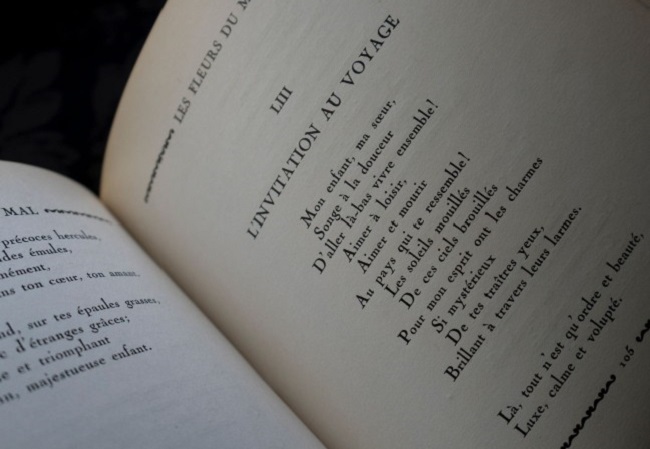
Editor’s note: This is the sixth installment in the series “Poetry in a Time of Dislocation.” Fine art photographer Fern Nesson asserts that the place for art is critical during this time of pandemic, and she has immersed herself in the French poets, translating important works and sharing them as photo essays. This week, in a return to Charles Baudelaire, Fern explains her method of translation.
(Click here for previous installments: Charles Baudelaire, Guillaume Apollinaire, Paul Valéry , Christine de Pizan , and Paul Verlaine .)
Baudelaire’s most famous poem is “L’Invitation au Voyage.” Translating this poem is treacherous since it’s been translated so many times by others (often exceedingly badly) but it gives me the opportunity to explain a bit about my approach to translation.
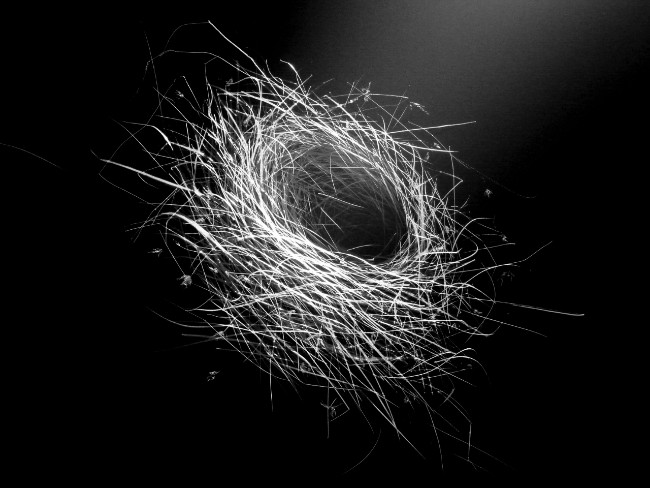
Photo: Fern Nesson
The French speakers among you will have noticed that I do not translate word for word nor to do I attempt to rhyme. In my view, translators who do that often sacrifice meaning, rhythm and poetry in their effort to reproduce the words exactly.
Instead, I practice what scholars of translation have called “mimesis.” Mimesis is an effort to get inside the poet’s head and heart, to come to understand his ideas, his intentions and the way he uses language. Then, having done that, a mimetic translator becomes the poet (metaphorically) and rewrites the poem in his own language. Done well, the poem will retain its rhythm, its poetic imagery and its meaning. (Just an aside: Baudelaire himself translated Edgar Allan Poe into French and he practiced mimesis in doing so.)
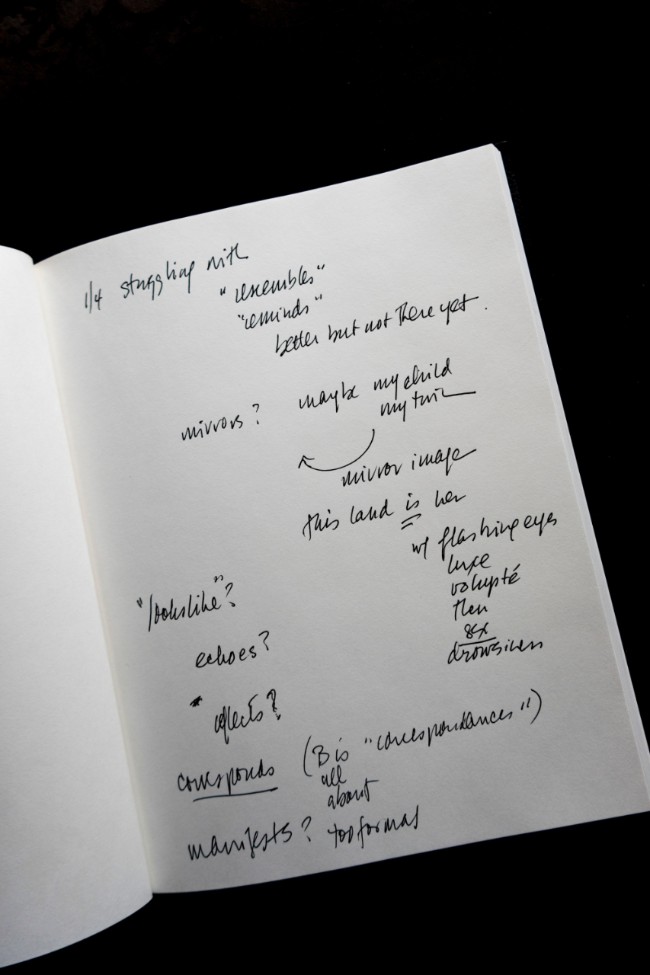
In my translation of “L’Invitation Au Voyage,” I tried my best to communicate Baudelaire’s thoughts and style but, in one instance, I gave up. The famous refrain — “Là, tout n’est qu’ordre et beauté, luxe, calme et volupté — defeated me. I could find no English words that could reproduce Baudelaire’s economy of expression and his absolutely magical way of describing paradise. So I left the refrain untranslated. The French words are close enough to English to give you a sense of their meaning and so I left them as written. Please forgive me and enjoy this extraordinary poem!
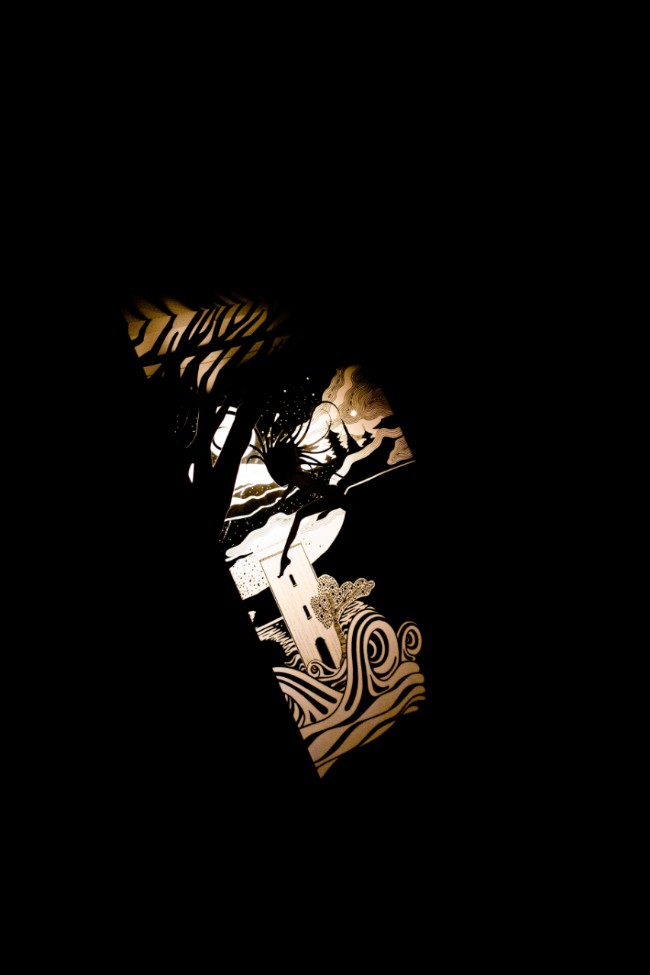
L’Invitation Au Voyage from Les Fleurs du Mal (1851)
Mon enfant, ma soeur, Songe à la douceur D’aller là-bas vivre ensemble! Aimer à loisir, Aimer et mourir Au pays qui te ressemble! Les soleils mouillés De ces ciels brouillés Pour mon esprit ont les charmes Si mystérieux De tes traîtres yeux, Brillant à travers leurs larmes.
Là, tout n’est qu’ordre et beauté,
Luxe, calme et volupté.
Des meubles luisants, Polis par les ans, Décoreraient notre chambre; Les plus rares fleurs Mêlant leurs odeurs Aux vagues senteurs de l’ambre, Les riches plafonds, Les miroirs profonds, La splendeur orientale, Tout y parlerait À l’âme en secret Sa douce langue natale.
Là, tout n’est qu’ordre et beauté, Luxe, calme et volupté.
Vois sur ces canaux Dormir ces vaisseaux Dont l’humeur est vagabonde; C’est pour assouvir Ton moindre désir Qu’ils viennent du bout du monde. — Les soleils couchants Revêtent les champs, Les canaux, la ville entière, D’hyacinthe et d’or; Le monde s’endort Dans une chaude lumière.
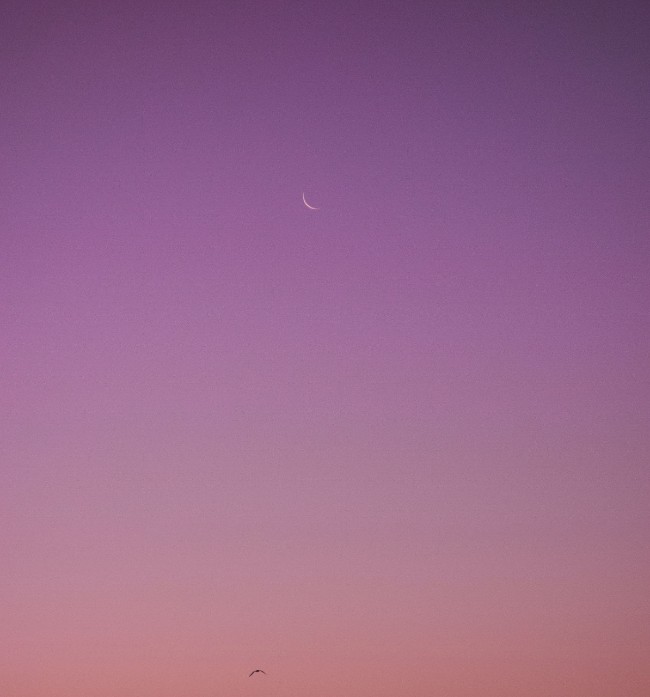
My translation
My child, my sister, my love, Imagine the joy of running away together, Free to love, To love and to die in a land that reminds me of you. A land where moist suns glow in misty skies,
A land whose mysterious charms are the same for me as your flashing eyes,
brilliant through their tears.
Gleaming woods burnished by the years adorn our chambers. the rarest of flowers mix their scents with hints of amber.
Coffered ceilings, Gilded mirrors, Carpets of oriental splendor — all whisper to us
in the sweet native language of the soul.
Picture a fleet of ships floating sleepily in the harbor awaiting your command. They stand ready to sail to the ends of the earth
to satisfy your least desire, your every whim.
The setting sun bathes the fields, the canals, the whole scene, in hyacinth and gold. All the world slumbers in its warm light.
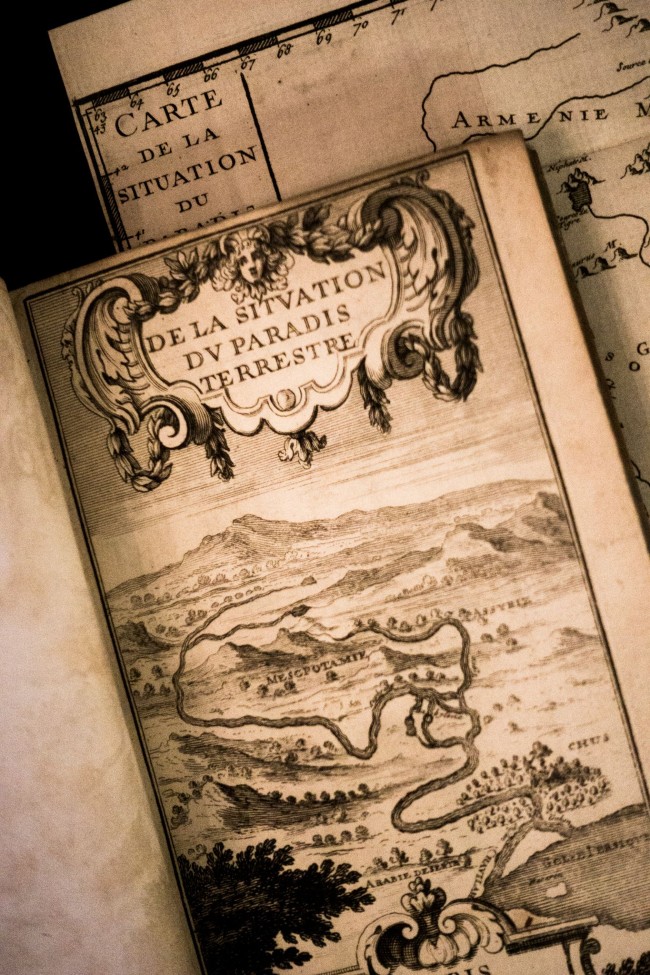
Lead photo credit : Photo: Fern Nesson
More in Charles Baudelaire , French poetry
Related Articles

Paris Vignettes: Outlines and Silhouettes

Paris Vignettes: The City’s Walls and Storefronts
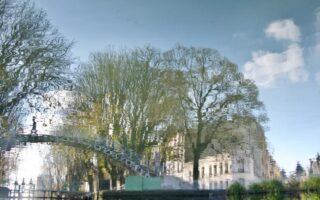
Paris Vignettes: Reflections
By fern nesson.

Based in Cambridge, Massachusetts, Fern Nesson is a fine art photographer with an MFA in photography. She visits Paris regularly where she captures interior scenes. Her work is abstract, and brings fresh perspective to lovers of Paris, while also illuminating interesting museum exhibitions and cultural events taking place in the City of Light. She recently published a book compilation of the popular Bonjour Paris series "50 Things I Miss About Paris." Purchase this beautiful, photography-filled book on Amazon or contact Fern directly by email: fernlnesson [at] gmail.com. She's offering a special deal for Bonjour Paris readers: purchase the book at cost, a $25 discount.
Summer Poem: "L'invitation au voyage" by Charles Baudelaire

UK Literary Editor
Charles Baudelaire’s “L’invitation au voyage” (Invitation to the Voyage) is part of our summer poetry series , dedicated to making the season of vacation lyrical again. Originally published in Les Fleurs du mal in 1857, it is something of the the first great call for holiday getaway. Or so we like to think.

It ought to surprise some, I think, that the poet of misery and ennuis, whose entire artistic project is predicated upon the making of beauty out of murk (an idea neatly encapsulated in the title of his greatest collection: The Flowers of Evil ), could write in longing terms about a foreign locale. Yet it is worth remarking that the idyllic land Baudelaire found so captivating was in fact inspired by the Netherlands. There’s thus no reason this poem couldn’t still very well be in evil-flower territory.
The land of order, beauty, luxury, calm and sensuousness (in no particular order) inspires the great Romantic to some of his lushest verse, not easily replicable in translation. The chorus, which has gone on to become almost ubiquitous in French culture, is particularly hard to replicate: “Là, tout n’est qu’ordre et beauté, / Luxe, calme et volupté.” And although Edna St. Vincent Millay got close to it in 1936, Jack Collings Squire’s earlier effort—which has the benefit of not being bound by copyright—is decent enough to be our translation of choice: The Invitation to the Voyage , by Charles Baudelaire(trans. Jack Collings Squire, 1909) How sweet, my own, Could we live alone Over beyond the sea! To love and to die Indolently In the land that’s akin to thee! Where the suns which rise In the watery skies Weave soft spells over my sight, As thy false eyes do When they flicker through Their tears with a dim, strange light. There all is beauty and symmetry, Pleasure and calm and luxury. Years that have gone Have polished and shone The things that would fill our room; The flowers most rare Which scent the air In the richly-ceiling’d gloom, And the mirrors profound, And the walls around With Orient splendour hung, To the soul would speak Of things she doth seek In her gentle native tongue. There all is beauty and symmetry, Pleasure and calm and luxury. The canals are deep Where the strange ships sleep Far from the land of their birth; To quench the fire Of thy least desire They have come from the ends of the earth. The sunsets drown Peaceful town And meadow, and stagnant stream In bistre and gold, And the world enfold In a warm and luminous dream. There all is beauty and symmetry, Pleasure and calm and luxury.

Become a Culture Tripper!
Sign up to our newsletter to save up to 500$ on our unique trips..
See privacy policy .
Since you are here, we would like to share our vision for the future of travel - and the direction Culture Trip is moving in.
Culture Trip launched in 2011 with a simple yet passionate mission: to inspire people to go beyond their boundaries and experience what makes a place, its people and its culture special and meaningful — and this is still in our DNA today. We are proud that, for more than a decade, millions like you have trusted our award-winning recommendations by people who deeply understand what makes certain places and communities so special.
Increasingly we believe the world needs more meaningful, real-life connections between curious travellers keen to explore the world in a more responsible way. That is why we have intensively curated a collection of premium small-group trips as an invitation to meet and connect with new, like-minded people for once-in-a-lifetime experiences in three categories: Culture Trips, Rail Trips and Private Trips. Our Trips are suitable for both solo travelers, couples and friends who want to explore the world together.
Culture Trips are deeply immersive 5 to 16 days itineraries, that combine authentic local experiences, exciting activities and 4-5* accommodation to look forward to at the end of each day. Our Rail Trips are our most planet-friendly itineraries that invite you to take the scenic route, relax whilst getting under the skin of a destination. Our Private Trips are fully tailored itineraries, curated by our Travel Experts specifically for you, your friends or your family.
We know that many of you worry about the environmental impact of travel and are looking for ways of expanding horizons in ways that do minimal harm - and may even bring benefits. We are committed to go as far as possible in curating our trips with care for the planet. That is why all of our trips are flightless in destination, fully carbon offset - and we have ambitious plans to be net zero in the very near future.

See & Do
Why dijon is the perfect french weekend getaway.

Best Places to Visit in France From the UK

Food & Drink
The best food to eat in the french alps.

Must-Visit Food Markets in France

Places to Stay
The top spas to book in historic french cities.

The Top French Dishes You Need to Try

The Most Beautiful Castles to Visit in Normandy, France

Secret Alternatives to Busy Marinas in the French Riviera for Avoiding the Crowds

Amazing Day Trips to Take Around Brittany by Boat

A Guide to Sailing in and Around France

Amazing Day Trips to Take Around Corsica by Boat


A Guide to Sailing in Charente-Maritime, France
- Post ID: 1404008
- Sponsored? No
- View Payload
L’invitation au voyage
By emmanuel chabrier.

Emmanuel Chabrier
Performances, previously performed at:.
- 95. Baudelaire in Song 22 Oct 2021
Help us with a Donation
Enjoying our texts and translations? Help us continue to offer this service to all.
Make a Donation
Select Tickets
- Friday, April 12, 2024
Opera Today
OPERA NEWS, COMMENTARY, AND REVIEWS FROM AROUND THE WORLD
L’invitation au voyage: Mélodies from La belle époque
Recorded on 2 to 4 June 2004, this collection of French mélodies from the end of the nineteenth century is a fine addition to Hyperion’s French Song Edition. John Mark Ainsley and Graham Johnson are well suited to the repertoire presented here, and this particular selection of pieces plays off a theme that was popular at the time, the prospect of journeying elsewhere. The responses in song are varied, and include a number of settings of the eponymous verse by Baudelaire that inspired a number of composers to embark on their own settings of his text. This is, in a sense, the French Belle Époque equivalent of the German Romantic “Kennst du das Land?” that intrigued generations of composers to fashion their own musical expressions of this well-known verse.
While Duparc’s setting of “L’Invitation au voyage” is probably the most famous, the others presented here merit attention for the nuances they bring to the poem. The one by Jules Cressonnois that opens the recording is engaging because of the combination of dramatic lines with more lyric ones, suggesting the tension present in voyaging away form the familiar. Other settings of the same text are included here, namely those by Benjamin Godard, Paul and Lucien Hillemacher and, naturally, Henri Duparc, and each presents an individual interpretation of the text. If a voyage entails a return, though, the placement of Duparc’s familiar “L’invitation au voyage” at the end provides a musical anchor in having a familiar mélodie at the conclusion of a set of otherwise unfamiliar, yet equally engaging music.
Beyond the composers listed above, there are songs by Léo Delibes, Charles Lecocq, Émile Pesard, Paul Puget, and Émile Paladilhe, and the poets outside of Baudelaire include Émile Augier, Alfred de Musset, Armand Silvestre, Jean de La Fontaine, Théophile Gautier, Victor Hugo, Sully Prodhomme, Pierre Corneille, Jean Aicard, and Jean Lahor. Of the familiar figures like Corneille, Hugo, and Musset, their names may not y draw associations with vocal music as readily as they do other genres. Yet their poetry inspired composers of this generation, and the music retains a freshness that resembles some of the art and architecture of the period in which it was written.
“Bonjour, Suzon” by Delibes is a case in point, with its extroverted address to Suzon — Suzanne — who remains absent to the traveler who is addressing her in the song. In the three strophes of unrequited entreaty, the repeated greeting of “bonjourn” becomes at the end “adieu” as the speaker makes in case in repeated efforts to speak to her. His voyages are met with a different situation at home, but the music suggests that it is not entirely tragic. It is hardly a sentimental piece, but the song that follows, “Regrets” by the same composer offers such poignancy. Here the accompaniment complements the vocal line by reinforcing the implied mood with some finely place chromatic inflections.
A similarly notable accompaniment occurs in “Guitare,” Godard’s setting of a poem by Hugo, and a charming piece. While the harmonic and melodic idiom is conservative, the song is crafted artfully to suit a gifted singer with the sense of nuance that Ainsley brings to this and other pieces in the collection. It is, perhaps, more rhythmically inventive than some of the other songs on this recording. While the rhythmic play is unmistakably intended to suggest the guitar, the syncopations play against the more regular accents in the text. A popular text at the time, the simply stated text implies a dramatic moment that attracted other composers to this poem, like Puget. In fact, the latter setting differs dramatically from Godard’s in its elegiac character and fervent tone.
Some of the pieces are simply exuberant, as with Lecocq’s “La cigale et la fourmi,” an encapsulation in verse of the story about the grasshopper and the ant. It is, as the comments in the accompanying booklet, a sophisticated piece that takes inspiration from the fables of La Fontaine, as “La chauve-souris et les deux belettes” (“The bat the two weasels”) that follows it in the recording and suggests the range of topics — and literature — that could be encompassed in this repertoire and which inspired composers’ musical imaginations.
This is a fine collection of French song from the Belle Époque, and those unfamiliar with the range of composers who worked at the time will find a solid introduction in this recording. The notes that accompany the recording are intelligent and perceptive and point to the deep know of the music that Graham Johnson has already shown in the material he has contributed to other Hyperion recordings. His accompanying is masterful, with thoughtful phrasing and careful dynamics. His interpretations remain solid and convincing. Moreover, John Mark Ainsley is in his element in these songs, and he brings to the repertoire a vibrant deliver that demonstrates his own immersion in the repertoire. Those who know his voice from other Hyperion collections have the privilege of hearing an entire album by this accomplished tenor. His approach is always well thought, with clear diction and apt expression. Ainsley and Graham Johnson have made a fine contribution to the discography of French song with this collection of melodies from a fascinating period in French music.
James Zychowicz
image=http://www.operatoday.com/L%27invitation.png image_description=L’invitation au voyage: Mélodies from La belle époque product=yes product_title=L’invitation au voyage: Mélodies from La belle époque product_by=John Mark Ainsley, tenor. Graham Johnson, piano product_id=Hyperion CDA67523 [CD] price=$18.99 product_url=http://www.arkivmusic.com/classical/album.jsp?album_id=137925
Related Posts
“birds and balls” in san francisco, some outstanding singing at the royal opera’s new carmen, bach’s easter music from the choir and orchestra of the age of enlightenment, a mesmerising death in venice from welsh national opera.

- Become a translator
- Request new lyrics translation

- Translations
- Translation requests
- Transcription requests
- Collections
- Add new translation
- Add new song
- Request a translation
- Request lyrics transcription
- Start forum thread
- New forum topics
- Recent comments
- Popular Content / Site statistics
- Website Rules
- Frequently Asked Questions
- Useful Resources
- lyricstranslate.com forum
- Add new idiom
- Lyricstranslate.com Forum
- Registration
- Bahasa Indonesia
- Português (Brasil)

Charles Baudelaire
L'invitation au voyage → english translation.
- 24 translations English #1 +23 more , #2, #3 , #4 , #5 , #6 , Arabic , Chinese , Finnish , German , Italian #1 , #2 , Japanese , Polish , Portuguese , Romanian #1 , #2 , #3 , #4 , Russian , Spanish , Swedish , Turkish #1 , #2 • 10 translations of covers English 1 , 2 , Catalan +7 more , Italian 1 , 2 , Polish , Portuguese 1 , 2 , Spanish , Turkish
L'invitation au voyage
Invitation to a journey
Thanks Details:

Translation by Marion Leeds Carroll (who has forgotten or ignored a stanza)
- Login or register to post comments
- Privacy Policy
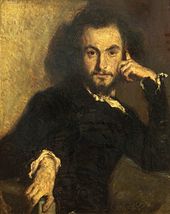
Charles Baudelaire
When Charles Baudelaire published his collection of poems entitled Les Fleurs du Mal (The Flowers of Evil) in 1857, he shocked an entire generation. “Candor and goodness are disgusting,” he wrote in the epilogue, describing his masterpiece instead as a “nice firework of monstrosities.”
If rape, poison, dagger and fire, Have still not embroidered their pleasant designs On the banal canvas of our pitiable destinies, It’s because our soul, alas, is not bold enough!
Among poems dealing with decadence and eroticism, “L’invitation au Voyage” lacks the grotesque imageries of the real world. The poet invites his mistress to dream of another, exotic world, where they could live together.
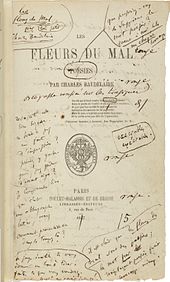
Baudelaire’s Les Fleurs du Mal
My child, my sister, think of the sweetness of going there to live together! To love at leisure, to love and to die in a country that is the image of you! The misty suns of those changeable skies have for me the same mysterious charm as your fickle eyes shining through their tears. There, all is harmony and beauty, luxury, calm and delight.
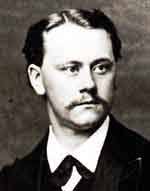
Henri Duparc
As with much of Baudelaire’s poetry, however, the dream maintains a vague sense of nightmare. It presents a sequence of flashing images without meaning, and a cloud of symbols with no system. “His lover is crying and her eyes look treacherous to him, their mystery shadowing the sunlight of his dreaming. The refrain will succeed only in part in restoring a peaceful atmosphere: the reader already knows that it’s nothing more than an illusion.”
Gleaming furniture polished by age would decorate our bedroom; the rarest of flowers would mingle their fragrance with the vague scent of amber; the rich ceilings, the deep mirrors, the splendor of the Orient – everything there would speak in secret the soul’s soft native tongue. There, all is harmony and beauty, luxury, calm and delight.
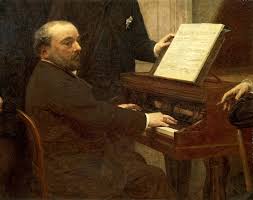
Emmanuel Chabrier
The dream confuses the souvenirs of the poet’s childhood with the only golden period of Baudelaire’s life. Furniture and flowers recall the life of his comfortable childhood, which was taken away by his father’s death. It contrasts sharply with his current life of a poor poet, who eventually had to go to court to defend against the charge that his collection was in contempt of the laws that safeguard religion and morality.
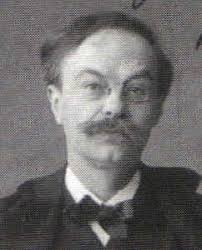
Alphons Diepenbrock
In 1841, his stepfather had sent him on a voyage to Calcutta, India, in hopes that the young poet would manage to get his worldly habits in order. The trip provided strong impressions of the sea, sailing, and exotic ports, which he later employed in his poetry. The sense of “oriental splendor” is a recurring theme in many Baudelaire’s poems, and his Indian voyage provided an obsession of exotic places and beautiful women. In “L’invitation au voyage” these two elements combine in one photograph, one single dream of perfect happiness.
See how those ships, nomads by nature, are slumbering in the canals. To gratify your every desire they have come from the ends of the earth. The westering suns clothe the fields, the canals, and the town with reddish-orange and gold. The world falls asleep bathed in warmth and light. There, all is harmony and beauty, luxury, calm and delight.

Hans Gefors
In the final stanza the dream reaches its resounding triumph. Vessels come from the ends of the earth to satisfy the desires of the poet’s mistress, and she is not crying anymore. The light of the setting sun turns everything golden and glorious, and the real world falls asleep. When night approaches, the dreamers achieve some real peace and they can live the beauty denied by reality. As Baudelaire tellingly writes, “how mysterious is imagination, the Queen of the Faculties.”
You May Also Like
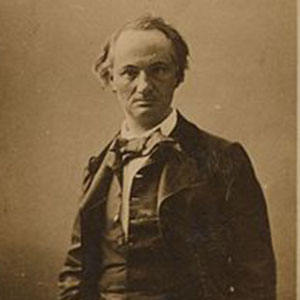
I have always loved this poem for its sound in French and for its imagery. For me, the imagery suggests a kind of life in death, or death in life, corresponding to Elysium.
Leave a Comment Cancel Comment
All fields are required. Your email address will not be published.
Save my name, email, and website in this browser for the next time I comment.
L’Invitation au Voyage
Henri Duparc
By Marianne Williams Tobias, The Marianne Williams Tobias Program Note Annotator Chair
DuParc’s “L’invitation au voyage,” composed in 1870, is a setting of two of three verses of the Symbolist poet Beaudelaire’s famous poem describing his love of the countryside in Holland, which he described in “Small Prose Poems,” as “ a singular country, drowned in the mists of our North, and could be called the East of the West, the China of Europe” and the longing of a man wishing to touch his lover. At this time, Beaudelaire was in love with an actress Marie Daubrun, and this poem describes a mystical trip growing in his mind, which finds them both in an exotic and perfect world.
The poem first appeared in a collection of 100 poems titled Fleurs du Mal (the Flowers of Evil), a publication which caused sensation and uproar. After a trial lead by the French lawyer Ernest Pinard (prosecutor of Gustave Flaubert) on August 20, 1857, six poems were immediately removed on grounds of obscenity…dealing with lesbian themes and sado-masochism… and Beaudelaire was fined 300 francs for “offending public morals…religious morals, and good customs….which the judges noted “necessarily lead to the excitement of the senses by a crude realism and public decency.” (quote from Pericles Lewis in Cambridge Introduction to Modernism.)
The poems were republished in 1861, and grouped into six parts. L’invitation au Voyage came from Part I “Spleen et ideal” which focuses explicitly on sexual and romantic love: and all the problems that can, and often do, result. The poet explained: “There are in every man at all times two simultaneous impulses-one toward God, the other toward Satan.”
Duparc provides a soft, slowly moving melody which remains essentially the same in both sections, but the accompaniment changes, evoking the sensuality, ecstasy, and emotion of the text. Glen Watkins in Soundings: Music in the Twentieth Century noted that “DuParc’s musical speech which characteristically engages a rich Wagnerian palette softened by static pedal figures is a natural for Beaudelaire’s dream world. The note of Orientalism, the reveries steeped in drugs, and the imaginary voyage were captured in a new accent” in this setting.
The poem reads:
My child, my sister
Think about the softness
To go there to live together.
Love at leisure,
Love and die
The country that resembles you!
The watery suns of those cloudy skies
For my spirit the charms so mysterious
Of your treacherous eyes
Shining through their tears.
There, all is order and beauty
Luxury, calm and voluptuousness
Gleaming furniture, polished by the years
Would decorate our room
The rarest flowers, mingling their fragrance
The faint scent of amber
The rich ceilings, the deep mirrors
Oriental splendor all speak there
At the core secret, its sweet native tongue.
There all is order and beauty
See on the canals, sleep these vessels
Whose mood is vagabond;
This is to satisfy
Your slightest desire
They come from the ends of the world.
The setting suns clothe the fields, the canals, the entire city,
In hyacinth and gold
The world falls asleep in a warm light.
Luxury, calm and voluptuousness.
Duparc also set Beaudelaire’s “La vie anterieur” which was published in 1902.
© Marianne Williams Tobias, Indianapolis Symphony Orchestra, 2016.
See all Program Notes
Help us continue our efforts to go ad-free!
LiederNet ran no external ads last month but donations only matched part of our usual ad revenue .
All of our work is done by human beings for human beings, and we have expenses to pay. Please help us continue to share this one-of-a-kind resource with the world.
Internet Archive Audio

- This Just In
- Grateful Dead
- Old Time Radio
- 78 RPMs and Cylinder Recordings
- Audio Books & Poetry
- Computers, Technology and Science
- Music, Arts & Culture
- News & Public Affairs
- Spirituality & Religion
- Radio News Archive

- Flickr Commons
- Occupy Wall Street Flickr
- NASA Images
- Solar System Collection
- Ames Research Center

- All Software
- Old School Emulation
- MS-DOS Games
- Historical Software
- Classic PC Games
- Software Library
- Kodi Archive and Support File
- Vintage Software
- CD-ROM Software
- CD-ROM Software Library
- Software Sites
- Tucows Software Library
- Shareware CD-ROMs
- Software Capsules Compilation
- CD-ROM Images
- ZX Spectrum
- DOOM Level CD

- Smithsonian Libraries
- FEDLINK (US)
- Lincoln Collection
- American Libraries
- Canadian Libraries
- Universal Library
- Project Gutenberg
- Children's Library
- Biodiversity Heritage Library
- Books by Language
- Additional Collections

- Prelinger Archives
- Democracy Now!
- Occupy Wall Street
- TV NSA Clip Library
- Animation & Cartoons
- Arts & Music
- Computers & Technology
- Cultural & Academic Films
- Ephemeral Films
- Sports Videos
- Videogame Videos
- Youth Media
Search the history of over 866 billion web pages on the Internet.
Mobile Apps
- Wayback Machine (iOS)
- Wayback Machine (Android)
Browser Extensions
Archive-it subscription.
- Explore the Collections
- Build Collections
Save Page Now
Capture a web page as it appears now for use as a trusted citation in the future.
Please enter a valid web address
- Donate Donate icon An illustration of a heart shape
L' Invitation Au Voyage...
Bookreader item preview, share or embed this item, flag this item for.
- Graphic Violence
- Explicit Sexual Content
- Hate Speech
- Misinformation/Disinformation
- Marketing/Phishing/Advertising
- Misleading/Inaccurate/Missing Metadata
méthode de lecture CM1
Plus-circle add review comment reviews, download options, in collections.
Uploaded by chaouki7622 on January 15, 2022
SIMILAR ITEMS (based on metadata)

- Permanent link
- Add Manuscript
- New Composition
- New Arrangement
- New Edition
- navbarexpfileent
- Search by IMSLP index
- Random page
- WIMA collection
- Commercial recordings
- Disclaimers
L'invitation au voyage, Op.114 (Godard, Benjamin)
Performances.
- Recordings ( 0 )
- Accompaniments ( 0 )
- Synthesized/MIDI ( 0 )
Sheet Music
- Scores ( 1 )
- Parts ( 0 )
- Arrangements and Transcriptions ( 0 )
- Libretti ( 0 )
- Other ( 0 )
- Source Files ( 0 )
Complete Score (B ♭ major) * #110869 - 0.53MB, 7 pp. - 0.0/10 2 4 6 8 10 ( - ) - V / V / V - 556 × ⇩ - Massenetique
PDF scanned by RUS-Mrg Massenetique (2011/7/25)
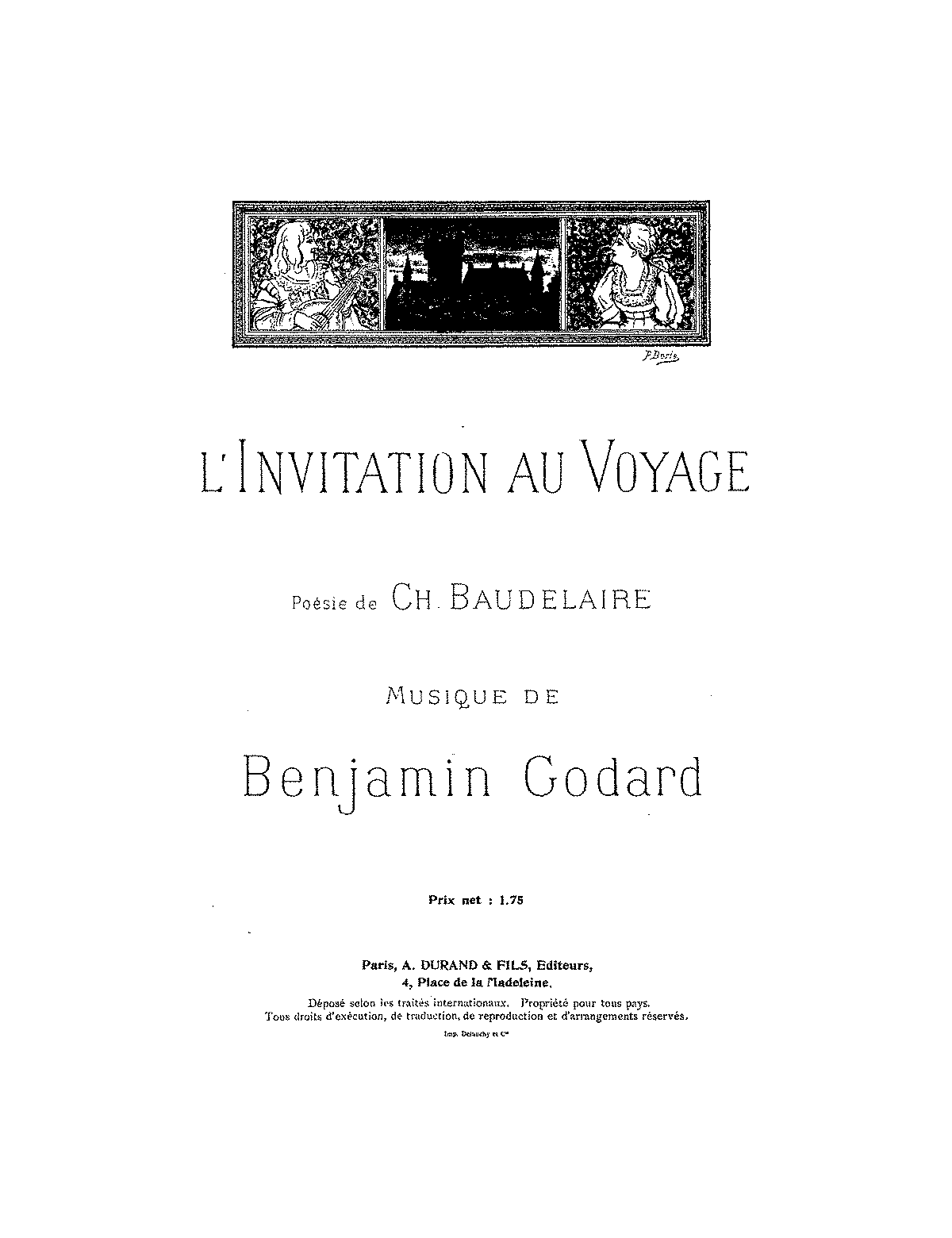
General Information
- Godard, Benjamin
- Romantic style
- For voice, piano
- For voices with keyboard
- Scores featuring the voice
- Scores featuring the piano
- French language
- Baudelaire, Charles/Librettist

IMAGES
VIDEO
COMMENTS
Text & Translation . View IPA. Display Inline. L'invitation au voyage French source: Charles Baudelaire. Mon enfant, ma sœur, Songe à la douceur ... Invitation Au Voyage: Marie-Laure Garnier & Célia Oneto Bensaid 21 Oct 2019; A French Songbook: Véronique Gens & Susan Manoff 24 Oct 2018;
L'Invitation au voyage est le titre de deux poèmes de Charles Baudelaire. L'un, en vers, figure dans le recueil Les Fleurs du mal (1857), numéro XLIX (49) de la première section intitulée Spleen et Idéal ; l'autre est en prose, publié en 1869 dans le recueil Le Spleen de Paris (numéro XVIII).
Invitation to the Voyage. My daughter, my sister, Consider the vista Of living out there, you and I, To love at our leisure, Then, ending our pleasure, In climes you resemble to die. There the suns, rainy-wet, Through clouds rise and set With the selfsame enchantment to charm me That my senses receive From your eyes, that deceive, When they ...
In the land that's akin to thee! Their tears with a dim, strange light. Pleasure and calm and luxury. In her gentle native tongue. Pleasure and calm and luxury. They have come from the ends of the earth. In a warm and luminous dream. Pleasure and calm and luxury.
by Charles Baudelaire (1821 - 1867) L'invitation au Voyage. Language: French (Français) Available translation (s): DUT ENG GER ITA SPA. Mon enfant, ma sœur, Songe à la douceur D'aller là-bas vivre ensemble ; -- Aimer à loisir, Aimer et mourir Au pays qui te ressemble ! Les soleils mouillés De ces ciels brouillés Pour mon esprit ont les ...
Photo: Fern Nesson. In my translation of "L'Invitation Au Voyage," I tried my best to communicate Baudelaire's thoughts and style but, in one instance, I gave up. The famous refrain — "Là, tout n'est qu'ordre et beauté, luxe, calme et volupté — defeated me. I could find no English words that could reproduce Baudelaire's ...
Luxe, calme et volupté. Baudelaire, Les Fleurs du Mal, L'Invitation au voyage. L'intimité des poètes se découvre dans leurs écrits et dans l'Invitation au voyage, Baudelaire nous ouvre la porte de sa chambre. Ce poème est issu du recueil Les Fleurs du Mal, il se situe dans la première section intitulée Spleen et Idéal.
UK Literary Editor. 28 June 2017. Charles Baudelaire's "L'invitation au voyage" (Invitation to the Voyage) is part of our summer poetry series, dedicated to making the season of vacation lyrical again. Originally published in Les Fleurs du mal in 1857, it is something of the the first great call for holiday getaway. Or so we like to think.
L'invitation au voyage by Emmanuel Chabrier. Composer. Emmanuel Chabrier. Performances Previously performed at: 95. Baudelaire in Song 22 Oct 2021; Help us with a Donation. Enjoying our texts and translations? Help us continue to offer this service to all. Make a Donation. 37 Fairacres Road Oxford OX4 1TH. 01865 591 276.
L'invitation au voyage Lyrics: Mon enfant, ma sœur / Songe à la douceur / D'aller là-bas vivre ensemble / Aimer à loisir / Aimer et mourir / Au pays qui te ressemble / Les soleils mouillés ...
text. If a voyage entails a return, though, the placement of Duparc's familiar "L'invitation au voyage" at the end provides a musical anchor in having a familiar mélodie at the conclusion of a set of otherwise unfamiliar, yet equally engaging music. Beyond the composers listed above, there are songs by Léo Delibes, Charles Lecocq, Émile
FREE 5 MINUTE SKYPE TRIAL!!!email me at [email protected] for details!French diction tutorial of : L'invitation au voyageComposer : Duparc...
Invitation to a journey. My child, my sister, dream of the sweetness. of going down there to live together, to love at leisure, to love and to die. in the land that resembles you! The damp suns. of those hazy skies. have charms for my spirit.
As Baudelaire tellingly writes, "how mysterious is imagination, the Queen of the Faculties.". Hans Gefors: L'invitation au voyage (Brigitta Svenden, mezzo-soprano; Nils-Erik Sparf, violin; Mats Bergström, cond.) We look at the music that Charles Baudelaire's "L'invitation au Voyage" inspired, composed by duParc, Chabrier ...
DuParc's "L'invitation au voyage," composed in 1870, is a setting of two of three verses of the Symbolist poet Beaudelaire's famous poem describing his love of the countryside in Holland, which he described in "Small Prose Poems," as " a singular country, drowned in the mists of our North, and could be called the East of the West, the China of Europe" and the longing of a man ...
An illustration of text ellipses. More. An icon used to represent a menu that can be toggled by interacting with this icon. Internet Archive Audio. Live ... L'invitation au voyage = Invitation to the voyage : a poem from The flowers of evil, 1854 by Baudelaire, Charles, ...
« Pour Baudelaire, les plus beaux voyagessont ceux que l'on imagine idéalementloin des contingences et des lourdeurs du réel ».Un poème qui ressemble à une b...
This text was added to the website between May 1995 and September 2003. Line count: 42 Word count: 169. Invitation to the voyage. Language: English  after the  French (Français) My child, my sister 1 , think of the sweetness of going there to live together!
L'invitation au voyage Alt ernative. Title Composer Duparc, Henri: I-Catalogue Number I-Cat. No. IHD 10 Key C minor Year/Date of Composition Y/D of Comp. 1870? Librettist Charles Baudelaire (1821-1867) Language French Dedication Georgette Leblanc (1869-1941) Composer Time Period Comp. Period: Romantic:
An illustration of text ellipses. More. An icon used to represent a menu that can be toggled by interacting with this icon. Internet Archive Audio ... Silent film pioneer Germaine Dulac adapted her 1927 feature L'Invitation au voyage from the poem of the same title by late-19th century French belletrist Charles Baudelaire. The film represents ...
An illustration of text ellipses. More. An icon used to represent a menu that can be toggled by interacting with this icon. Internet Archive Audio ... l-invitation-au-voyage... Identifier-ark ark:/13960/s2w166fj20v Ocr tesseract 5.0.0-1-g862e Ocr_detected_lang fr Ocr_detected_lang_conf 1.0000 Ocr_detected_script Latin
L'invitation au voyage Alt ernative. Title Composer Godard, Benjamin: Opus/Catalogue Number Op./Cat. No. Op.114 I-Catalogue Number I-Cat. No. IBG 43 Librettist Charles Baudelaire (1821-1867) Language French Composer Time Period Comp. Period: Romantic: Piece Style Romantic: Instrumentation Voice, Piano